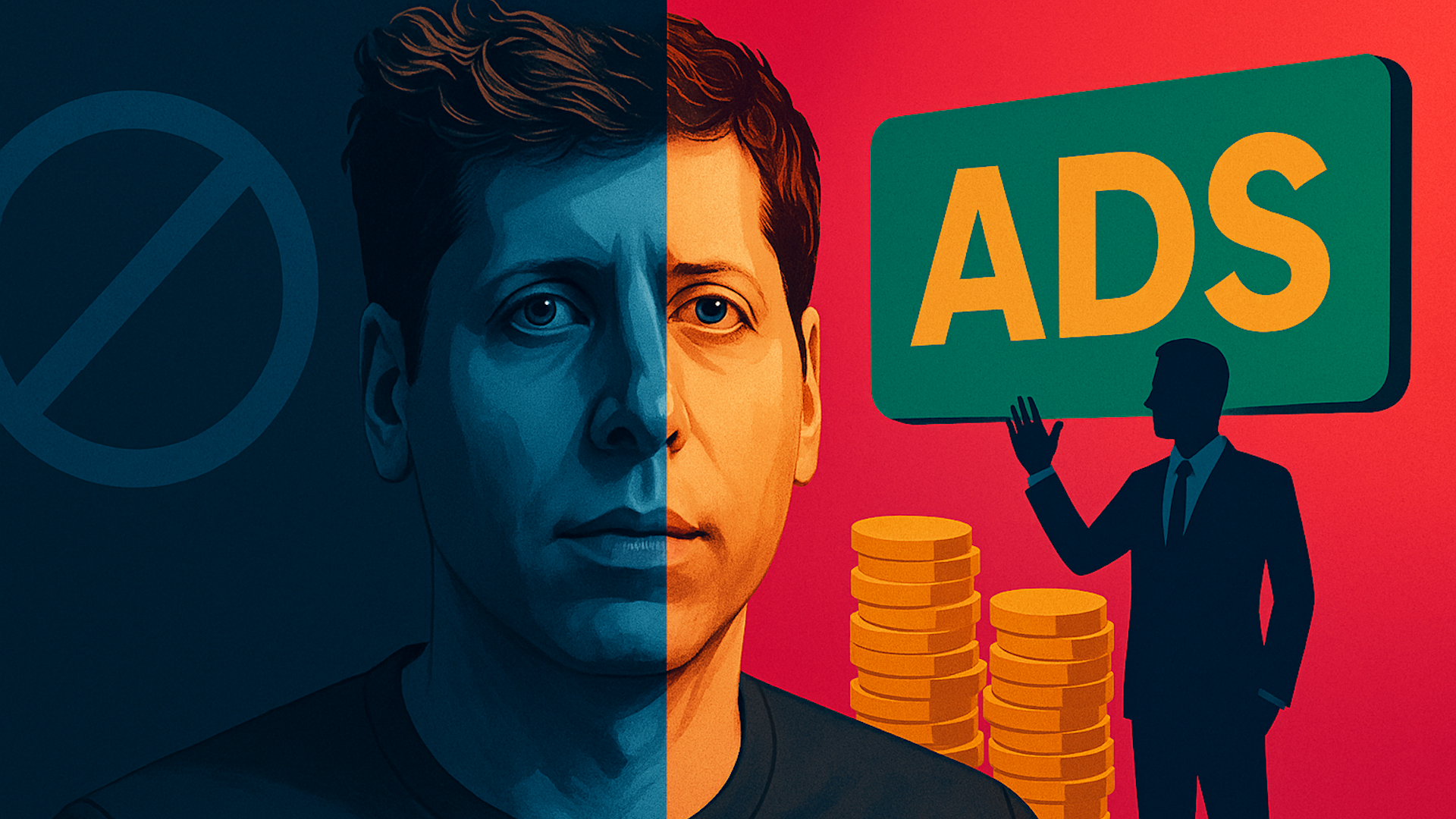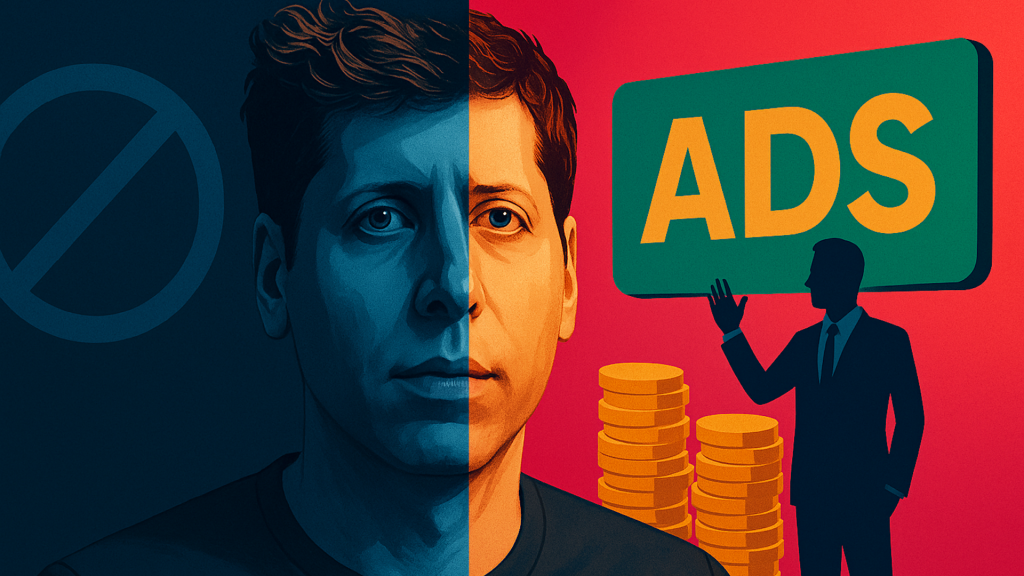Sam Altman’s ChatGPT pivot: From ‘I hate ads’ to ‘maybe they don’t suck’

Sam Altman once said advertising was a “last resort” for ChatGPT. Now he seems to think that “maybe ads don’t always suck.”
What Altman is saying. In a new Stratechery interview, Altman admitted Instagram changed his mind about ads:
- “I love Instagram ads, they’ve added value to me, I found stuff I never would’ve found, I bought a bunch of stuff, I actively like Instagram ads. I think there’s many things I respect about Meta, but getting that so right was a surprisingly cool thing for me. Other than that, I viewed ads on the Internet as sort of like a tax.”
- “I believe there probably is some cool ad product we can do that is a net win to the user and a sort of positive to our relationship with the user. I don’t know what it is yet, I’m not like, ‘Here is our ad model’ already.”
What Altman used to say. Altman dismissed ads in 2024 as “a momentary industry.” He also said:
- “I kind of hate ads as an aesthetic choice … I like that people pay for ChatGPT and know the answers they’re getting are not influenced by advertisers.”
At Harvard, he called ads a “last resort” and said “ads-plus-AI is sort of uniquely unsettling to me.”
In a March interview, Altman once again dismissed “traditional ads” and shared his vision for an ads product:
- “The kind of thing I’d be much more excited to try than traditional ads is a lot of people use Deep Research for ecommerce, for example, and is there a way that we could come up with some sort of new model, which is we’re never going to take money to change placement or whatever, but if you buy something through Deep Research that you found, we’re going to charge like a 2% affiliate fee or something. That would be cool, I’d have no problem with that. And maybe there’s a tasteful way we can do ads, but I don’t know. I kind of just don’t like ads that much.”
- “I’m not going to say what we will and will never do because I don’t know, but I think there’s a lot of interesting ways that are higher on our list of monetization strategies than ads right now.”
Then something changed. By mid-2025, the tone started softening.
On OpenAI’s own podcast, Altman said:
- “We haven’t done any advertising product yet. I’m not totally against it … I like ads on Instagram. … It’d take a lot of care to get right.”
- “Google Search was an amazing product for a long time. It does feel to me like it’s degraded. … There was a time where there were lots of ads, but I still thought it was the best thing on the Internet. I mean, I love Google search. … It’s clearly possible to be a good ad-driven company, but … there are obviously issues, too.”
And after launching ChatGPT Pulse, he told reporters:
- “To the degree we can find out cool things to do that actually seem helpful to users … maybe there’s something to do there. But … we approach ads with great caution.”
Why the change? Because OpenAI is staffing up to turn ChatGPT into an ad platform. ChatGPT is also banking on $1 billion in new revenue from “free user monetization” (read: ads) in 2026, according to an internal document.
Why we care. The launch of ChatGPT ads product would give advertisers access to a massive new paid media channel with 800 million users. Altman once saw ads as the internet’s necessary evil. Now, he sees them as a possible feature – if done right. Stay tuned to see whether OpenAI can reinvent advertising for the AI age.







Recent Comments